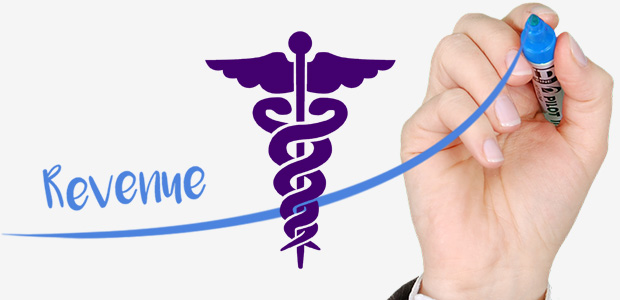Is Revenue Integrity Critical in Healthcare?
What is Revenue and Why is it Important?
The exact wording may vary, but you can look for terms such as “gross revenue,” “gross sales,” or “total sales.” This figure is the amount of money a business brought in during the time period covered by the income statement. The total revenue figure is important because a business must bring in money to turn in a profit and remain in business.
What is Revenue Integrity?
According to the National Association of Healthcare Revenue Integrity, the objective of revenue integrity “is to prevent recurrence of issues that can cause revenue leakage and/or compliance risks through effective, efficient, replicable processes and internal controls across the continuum of patient care, supported by the appropriate documentation and the application of sound financial practices that are able to withstand audits at any point in time.”

Revenue integrity in healthcare makes sure that all clinical encounters between providers and patients transform into revenue, by employing systems and procedures that center on efficiency, compliance and the best possible compensation for services.
As a crucial part of revenue cycle management, it implies that what is delivered is being billed and that what is billed is being delivered. All compensations payable should be secured in the most exacting and effective ways that are doable.
Revenue integrity programs exist across every type of healthcare facility, from small practices to sizable hospitals. While this routine may not appear as significant as diagnosing and treating patients, it’s actually quite essential. Short of revenue integrity, healthcare facilities would be incapable of providing care for patients. This is why revenue integrity programs are more and more crucial across the healthcare landscape.
Why is Revenue Important?
As with most any business, making certain that correct payment for services or products supplied is vital to survival. If each day’s labor is not wholly compensated, it makes it more challenging to participate. This difference between what ought to be paid and what is actually being taken in is referred to as “leakage.”
A metaphor here is appropriate: Envision during freezing weather if a practice had their furnace turned up, however, in one or more rooms, undiscovered by everyone, windows or even doors were open to the severe elements. Now, everyone must work much harder to realize something that ought to cost less and need less effort. By plugging these symbolic holes, revenue integrity allows providers to focus on delivery of services and more positive results with less effort.
How is Revenue Integrity Achieved?
Healthcare practices and hospitals that would like their operations focused on revenue integrity must create a plan and set up rules and procedures that practitioners, coding and billing staff, and anyone else concerned with revenue need to follow.
Here are Some Best Practices:
- Examine all components and procedures of your workflows, from clinical functions to billing, to make sure they are cohesive, efficient and in compliance.
- Make sure crucial processes such as coding, documentation, and charge capturing are working at peak levels.
- Claim denials result in substantial revenue leakage. Take the initiative in denial management.
- Ensure better clarity into the pieces of your revenue cycle to make sure they are cohesive and are headed toward the same goals.
- Assess your existing technologies to make sure they’re the latest available.
- Employ tech solutions that offer insights you can use to make forecasts and take necessary actions. For example, automated revenue cycle management solutions can release staff so they can concentrate on patients. Automatic scanning can allow staff to examine coding prior to submitting claims to slash the number of denials.
- Have a third party, such as Medwave, appraise the features of your revenue cycle to make sure it’s running as efficiently as feasible.
What are Some of the Benefits of Revenue Integrity?
The benefits of including revenue integrity in a practice or facility are many, especially since healthcare practitioners have to cope with increased overheads and decreased ROI.
- Enhanced workflow: Revenue integrity has led to a reduction in accounts receivable.
- Consistent processes: Shared standardized processes do away with recurring problems.
- Improved denial management: Claims can be automated almost effortlessly to accelerate reimbursement.
- Improvement in compliance: This assists every piece of the revenue cycle.
- Enhanced charge assurance: Proving that all charges for medical services are correct.
How Do I Fit Revenue Integrity into My Practice or Facility?
The first thing you must decide when creating a revenue integrity program for your organization is who will be in charge. Each area – clinical, compliance and revenue – has various skill sets. That’s why it’s critical to have a leader or department supervising revenue integrity and incorporating all elements and workflows.
Often, it’s best to look to a third-party company to manage a revenue integrity program, particularly if you are short of the necessary staff and resources.
Medwave provides credentialing and medical billing to a variety of healthcare providers. Our team of professionals can help you boost reimbursements from third-party payers, recognize and recapture underpayments, redistribute overhead related to in-house staff and deliver a more streamlined process.

